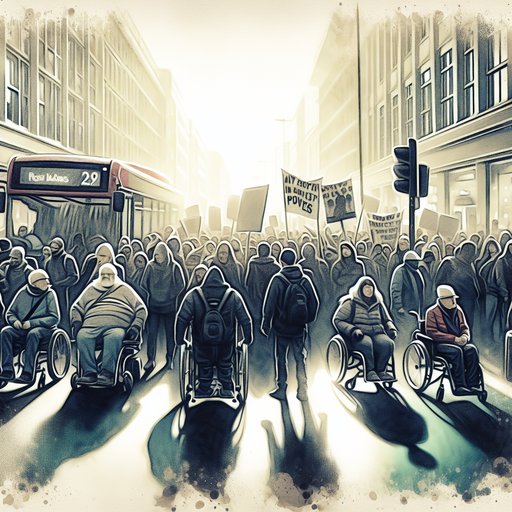
This week, Indianapolis witnessed a significant protest as IndyGo's proposal to increase bus fares by 57% faced strong opposition from riders with disabilities and low incomes. The planned fare hike, set for a vote in August, has become a flashpoint for discussions on accessibility and affordability in public transportation, highlighting the challenges faced by vulnerable communities in the city.
The proposed fare increase by IndyGo comes in response to dwindling fare revenue, a challenge that many public transit systems face. However, the 57% hike has raised alarm among those who rely on affordable public transportation the most. Protesters argue that such a steep increase would disproportionately affect individuals with disabilities and low-income riders, who already face significant financial hurdles. The protest, which took place at a central IndyGo bus terminal, saw participation from community groups and advocacy organizations.
Demonstrators held signs and chanted slogans, calling for the city to reconsider the fare hike. They emphasized the importance of maintaining affordable transit options to ensure that all residents have access to essential services and opportunities. IndyGo officials have acknowledged the concerns raised by protesters but maintain that the fare increase is necessary to sustain operations and improve services. They have proposed measures to mitigate the impact on vulnerable riders, such as discounted passes for low-income individuals.
However, these assurances have done little to quell the discontent among those who feel that public transit should remain universally accessible. As the August vote approaches, the protest has sparked broader discussions about the role of public transportation in promoting equity and social inclusion. Advocates are calling for a more comprehensive approach to transit funding that does not rely heavily on fare increases. The outcome of this debate could set a precedent for how cities balance financial sustainability with the needs of their most vulnerable residents.
























